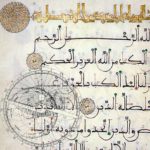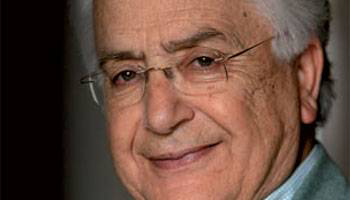
Christian thought does not conflict with scientific thinking as such, but rather rejects scientific findings that conflict with the sacred text. We see many Christian clerics working in the field of scientific endeavour. Some of these clerics attempt to employ the scientific method in order to confirm religious verities contained in the sacred texts. The same goes for Jewish thought – it does not oppose scientific method as such but rather opposes any scientific truth that conflicts with the truths of the Torah.
THERE IS THEREFORE no intellectual obstacle standing in the path of society’s advance towards science, since there have been, and still appear, many innumerable Jewish scientists of the likes of Sigmund Freud and Albert Einstein. Many are holders of the Nobel Prize, the most recent being Dan Schechtman, winner of the Nobel Prize for chemistry in 2011. And the reason for this huge quantity of Jewish scientists is this absence of any intellectual impediment existing between society and scientific reasoning. In his notable work Judaism and Science, Noah J. Efron holds that Jewish thought is less influenced by closed, hard-line opinions so much as by a traditional self-discipline, and the fact that Jews, due to their moderate make-up, have distanced themselves alike from absolutism and post-modernist openness:
The Jewish mind, it would seem from a survey of Jewish thought, is less susceptible to dogma, to rigid conventional discipline than, let us say, was the Greek mind… The Jews, possibly because of their constitutional make-up, steered clear of the Scylla of absolutism and the Charybdis of nihilism.[1]
As for Islamic thought, which militated against the intellect and quashed the scientific Nahda and which is still predominating, it has adopted a position of hostility towards the intellect and scientific reasoning as such, and not merely towards some specific scientific findings, as is the case with Christianity and Judaism. Islamic thought rejects both the product and the methodology. This is because this methodology depends, amongst other things, upon rational reasoning. Islamic thought has therefore excommunicated the scientists of the Nahda as ‘Disbelievers’, and disparaged them, despite the fact that none of the results of their scientific work has ever conflicted with what is contained in the Qur’ān.
The Church’s self-criticism of its earlier standpoints on scientists and its re-evaluation of them, and the participation of clerics in scientific activity are things unknown to Islamic thought. The historical record of Islam – and modern attempts to claim the credit for the sciences – provide us with no examples of a religious personality practicing the natural sciences as a profession or merely taking an interest in them. On the contrary, we find that from the last century there have been scientific specialists who have abandoned science in favour of religious thought. We also encounter summary insistence upon declaring the scientists of the Nahda ‘Disbelievers’. This type of thinking, which from the 11th century to the present day has rejected rationality as a basis (the very rationality that led to the rise of scientific thought) cannot be reconciled with science, for the latter depends upon logical thinking as one of its indispensable foundations.
Islamic thought rejects both the findings of science and its methodology
Hostility to science and scientists is a necessary product of the inability to accept self-questioning, critical thought. The religious scholar still affirms that the only true sciences are religious sciences, and the only true scholars religious scholars.
Excommunication by Islamic intellectual institutions of scientists, or warring against their can only alienate society from an endeavour distorted by the way it has been portrayed. And this is what has come to pass.
It is the standpoint of Islamic thought that emerged in the 11th century that lies behind the lack of any subsequent scientific and intellectual resurgence, and the absence of any religious scholars working in the scientific arena. Will Islamic religious institutions be able to show the same boldness of Pope John Paul II in self-criticism, repudiate the excommunication and disdain for the scholars of the earlier Islamic resurgence and make a religious re-evaluation of them?
Modern scientific institutions imported since the 20th century from the West as institutions and working organisations for the purpose of modernisation do not have any intellectual or social roots in their new environment. This explains why they do not have the capacity to grow or compete even with those founded at the same time, or even later, in China, Japan or Singapore. Science lives as an orphan and a stranger in an Islamic environment, the same environment that attempts to claim ownership of them without any true awareness of them at the societal level. If science is dealt with like some decorative element of modernity it will has no influence upon society and be of no value to reform. Any alignment with scientific thought must be built primarily upon an alignment with intellectual reason and a respect for its rules, on the creation of societal respect for the scientific endeavour. There is no doubt that any thinking that fails to respect reason and instead relies upon repetition in its arguments cannot handle science in any way.
Islamic thought’s difficulty with science differs from Christianity’s or Judaism’s difficulty with it. Islamic thought’s differences with science are deep-rooted, intellectual and acute, and they conflict with the scientific mentality in every way. Scientific thought has at base a logical, rational and empirical foundation, while Islamic thought fundamentally does not recognize the rational method and thus rejects the most important foundations of scientific knowledge.
The accumulation of history has led it to erect a huge barrier between reason and life, and this in turn has led to what the thinker Muhammad Arkoun called ‘sacralised ignorance.’[2] The labelling of the Nahda scientists as ‘disbelievers’ was not the result of some scientific finding that conflicted with the sacred text, as was the case with Christian thought, but was rather the result of the intellectual method that the Nahda scientists were depending upon, and which these takfirist thinkers disagreed with. The result of this was that the entire intellectual output of the Nahda was considered to have no value and was outlawed, and its exponents considered to have left the pale of Islam.[3] The danger in this position is represented by the drawing of red lines in Islamic thought that may not be overstepped, red lines which are still in vigour today.
Science lives as an orphan and a stranger in an Islamic environment
True philosophical thinking works via epistemology and the method of scientific knowledge is a clear, consistent method, with the exception of specific cases produced by modern scientific data which raise many questions. The foundations of scientific thought cannot be aligned at all with a mental paradigm established in the 11th century and persisting to this day, for they are two mutually incompatible paradigms.
The philosophy of science has experienced a number of attempts to set boundaries to scientific thought, and this is known as the ‘demarcation problem.’ These are the borderlines between science and non-science, or between science and philosophy, or science and religion or science and pseudo-science. However, all such attempts (some which are still a matter of dispute) do not go beyond philosophical debates at the deep level between philosophers of science.[4] They are a matter of divisions between different intellectual paradigms and there is no attempt in these to ideologize the pattern of scientific thinking to any other pattern for the purpose of aligning it with an opposing paradigm. Such a practice would be intellectually self-contradictory.

Suggested Reading
Science grows and develops on a foundation of freedom to question and to doubt, on the freedom to make hypotheses and the freedom to verify these hypotheses by recourse to predicted or unpredicted results. But they must be independent of the personal preferences and beliefs of the investigator. This doubt is a ‘methodical doubt,’ the aim of which is to arrive at objective scientific truth, not to insist upon confirming a desired result without reference to the reach of scientific investigation. This is what we perceive in the comments by Pope John Paul II mentioned earlier[5] where he confirmed that the results of scientific endeavour (particularly the theory of evolution) were not fabricated but neutral.
The problem of scientific research’s findings conflicting with sanctified verities like this cannot be allowed to halt the social progress of science, a science which Islamic societies are considered to be in dire need of. Rather, the problem is the lack of acceptance of scientific reasoning and the attempt to reconfigure it according to the religious viewpoint. This is a question of the utmost importance, for it insistently demands the rejection of rational logic, a rejection which has led in the past, and leads still, to backwardness and severe social regression.
[1] Noah J. Efron, Judaism and Science: A Historical Introduction, Greenwood Publishing Group, 2007.
[2] M. Arkoun, , تاريخ مقارن للاديان التوحيدية tr. H. Salih, Dar al-Saqi, 2011.
[3] الاسلام فتاوى شيخ 35/135; درء التعارض 2/281; الحاديات في مذكراته – في تاريخ الفلاسفة p.270; مجموع الفتاوى 9/214-215; الرد على المنطقيين p.141.
[4] Cover, J.A., Curd, Martin (Eds, 1998) Philosophy of Science: The Central Issues, 1-82.
Main image: Shaykh Rafi’a al-Tahtawy – an unvalued and outlawed symbol of the Nahda


